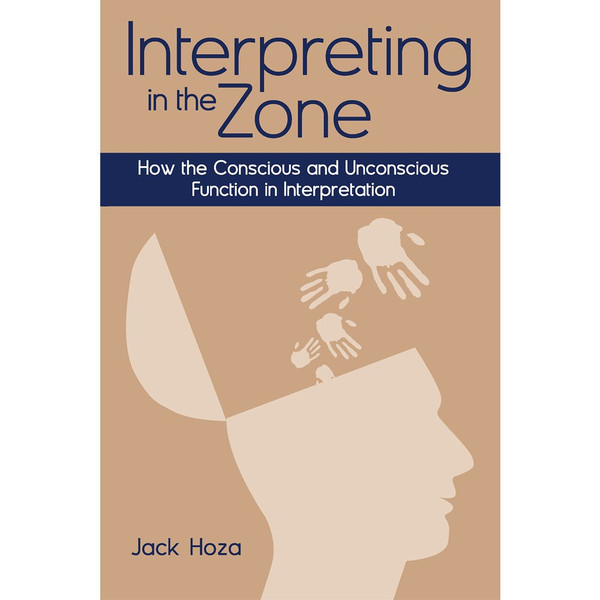 Loading... Please wait...
Loading... Please wait...- Visit Us: 8400 Menaul Blvd, Suite F, Albuquerque, NM 87112
- Home
- Books & Multimedia
- Interpreting
- Interpreting in the Zone
Shop our Store
Interpreting in the Zone
Product Description
Successful interpretation can feel seamless, yet the process of interpretation is actually quite complex and relies upon myriad components ranging from preparation to experience to honed judgment. Interpreting in the zone, instinctively and confidently, is an energizing, encompassing experience that results in great satisfaction and top performance-but what does it take to get there?
Jack Hoza's newest research examines the components that enable interpreters to perform successfully, looking at literature in interpretation, cognitive science, education, psychology, and neuroscience, as well as reviewing the results of two qualitative studies he conducted. He seeks to uncover what it means to interpret in the zone by understanding exactly how the brain works in interpretation scenarios.
Cognitive processes such as perception, short-term memory, and reflexivity are strong factors in driving successful interpretation and are explored along with habits, behaviors, and learned strategies that can help or hinder interpretation skills. Hoza also considers the importance of professional development and collaboration with other practitioners in order to continually hone expertise.
Jack Hoza is a professor and director of the ASL/English Interpreting Program at the University of New Hampshire at Manchester. He is the son of deaf parents.
Jack Hoza's newest research examines the components that enable interpreters to perform successfully, looking at literature in interpretation, cognitive science, education, psychology, and neuroscience, as well as reviewing the results of two qualitative studies he conducted. He seeks to uncover what it means to interpret in the zone by understanding exactly how the brain works in interpretation scenarios.
Cognitive processes such as perception, short-term memory, and reflexivity are strong factors in driving successful interpretation and are explored along with habits, behaviors, and learned strategies that can help or hinder interpretation skills. Hoza also considers the importance of professional development and collaboration with other practitioners in order to continually hone expertise.
About the Author
Jack Hoza is a professor and director of the ASL/English Interpreting Program at the University of New Hampshire at Manchester. He is the son of deaf parents.



